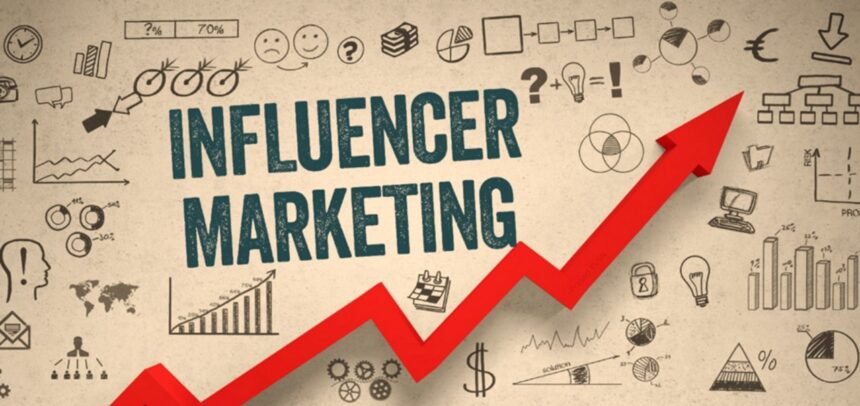Significant shifts are occurring in how the beauty sector markets its products, primarily driven by the growth of influencer marketing. This tactic has emerged as a critical strategy, altering how firms interact with their clients, especially the younger demographic who are frequent internet users.
By the end of 2024, the influencer marketing sector is projected to hit $24 billion, underscoring its significant influence and ongoing potential for expansion. Influencers, with their robust online visibility, are pivotal in establishing beauty trends and influencing consumer preferences, making them essential for companies aiming to engage and maintain a broad online audience.
Understanding Influencer Marketing
Influencer marketing involves partnerships between businesses and well-known social media figures to boost product recognition and encourage buying. In the beauty sector, these influencers range from acclaimed beauty specialists to avid makeup enthusiasts with significant online followers. These influencers are categorized into three types: micro, macro, and mega, each serving distinct roles. For instance, micro-influencers connect on a deeper level with their audience, making them ideal for reaching specific market segments. Conversely, macro and mega influencers offer the broad exposure necessary for widespread promotional activities.
Working with an influencer marketing agency that also handles public relations and branding can amplify these efforts. Such agencies are proficient in creating appealing stories that engage specific audiences and placing these stories effectively in the media. Their skills are crucial in matching the right influencer with the appropriate campaign and in boosting the overall effectiveness and impact of marketing projects, ensuring each campaign achieves optimal results.
Alignment with Young Consumers’ Values
Today’s younger shoppers prioritize transparency, authenticity, and relatability in their preferred brands. Influencers align with these qualities by sharing their personal stories and lifestyles. They often advocate for sustainable and ethical practices, attracting those concerned with environmental and social issues.
This match not only boosts the influencers’ trustworthiness but also builds a stronger bond between consumers and brands. In a time when young buyers quickly spot fake or misleading messages, influencers who stay true to their principles stand out. They don’t just push products; they promote a lifestyle that aligns with their audience’s values.
Personalization and Product Recommendations
Influencers are great at giving personalized beauty advice and recommending products. By showing how products work in everyday situations, they make shopping easier for their followers. This personal touch is especially useful in the beauty industry, where people can feel lost with so many options.
Their advice is crucial because it helps consumers make choices that fit their needs and tastes. Instead of a random guess, shopping becomes a more tailored experience. By keeping up with the latest trends, influencers often help people find products they didn’t realize they wanted.
Enhanced Engagement Through Social Media
Influencers connect with their followers using different formats like tutorials, live streams, and Q&A sessions. These exchanges not only entertain but also inform customers about the newest beauty trends and methods.
This type of interaction helps companies build a devoted group around their offerings, making customers feel more connected and committed to the company’s achievements. It’s akin to having a buddy in the beauty industry who keeps you updated and provides useful advice. Each click, like, and share strengthens this online community, increasing a brand’s visibility.
Impact on Buying Behavior
A recommendation from a well-known influencer can greatly affect how people buy things. Young buyers, especially, often trust and feel loyal to the influencers they follow. This trust can make influencer endorsements a strong marketing tool, leading to noticeable increases in sales.
When an influencer honestly promotes a product, their recommendation can be more effective than regular ads. These online stars can make lesser-known products highly sought after in no time. Their endorsement is the key sign young consumers look for before making a purchase.
Challenges and Criticisms
Even though influencer marketing can be effective, it has its problems. The market might get too crowded, making it hard for brands to stand out. Plus, people might question the sincerity of influencer recommendations if they seem too promotional or fake.
To tackle these issues, both brands and influencers are focusing more on being clear about their partnerships. They make it obvious when posts are sponsored and work to keep honest communication with their audience. Finding the right balance is key, making sure the influencer’s genuine voice isn’t overshadowed by commercial interests. When handled properly, this transparency can actually increase the trust people have in both the influencer and the brand.
Final Thoughts
Influencer marketing has changed the beauty industry by changing the way brands connect with younger buyers. Looking ahead, this trend will keep growing, with brands expected to create more advanced methods to use social media stars effectively. This change will keep affecting how people shop and what they like in beauty products for a long time.






